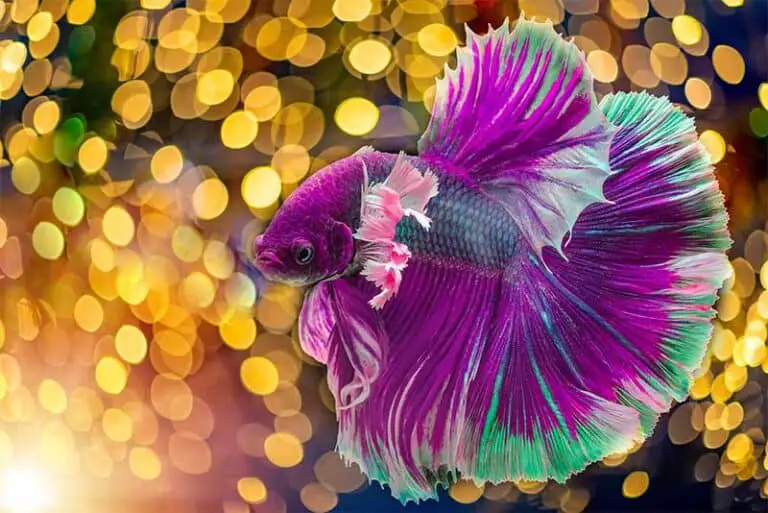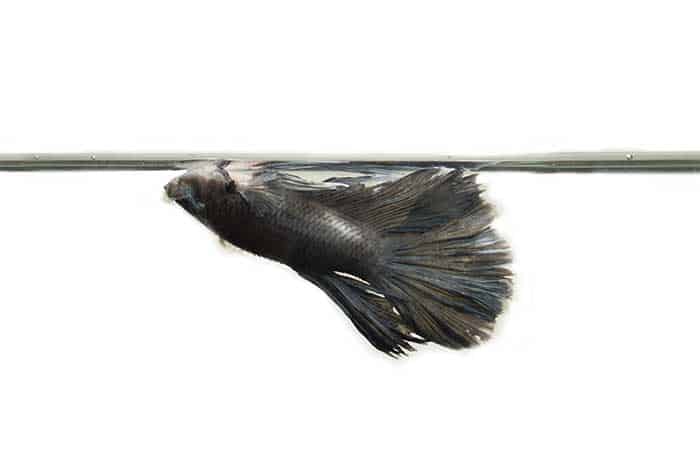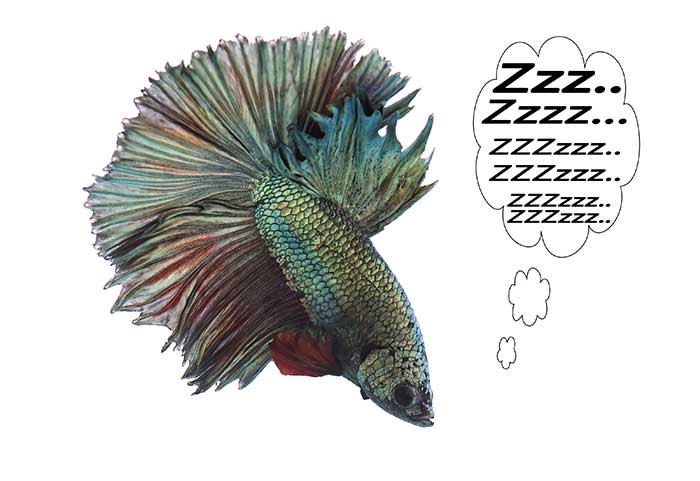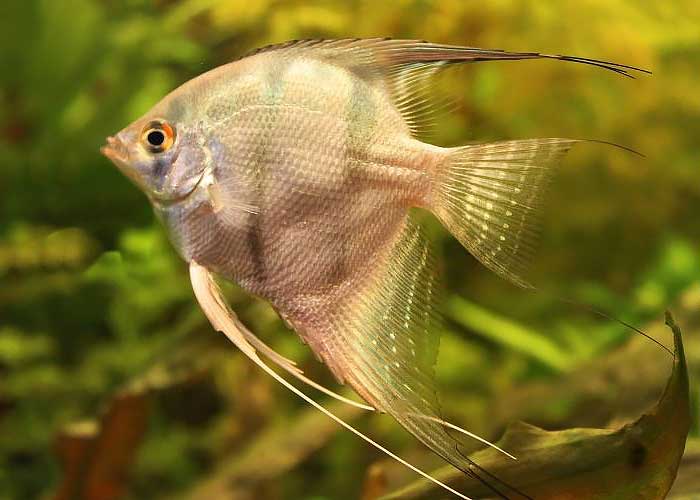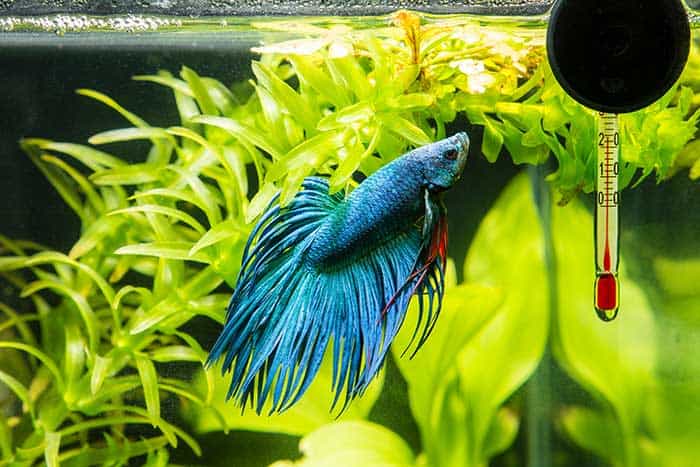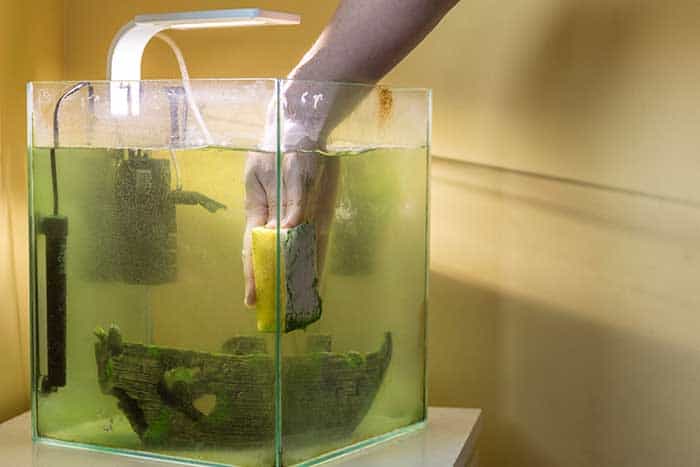How Often To Change Betta Water – What you need to know
If you are new to betta fish and are unsure how often to change betta water, this article is perfect for you. Water changes are undoubtedly the most important part of maintaining an aquarium, keeping water parameters in check for a healthy, balanced tank.
Ideally, you should perform a partial water change on your betta tank every two weeks to reduce ammonia-causing food or fish waste from building up. Smaller betta tanks may benefit from a partial water change every 1 or 2 days unless you have a suitable filter. Regular water tests can help you gauge how clean your tank is and when to change the water.
Many factors will determine how often you should change your betta water, such as:
- What is the tank size?
- How many fish are in the aquarium?
- How often do you feed your betta fish?
- Do you have a filter in your aquarium?
- Is it a well-planted betta tank?
You may also need to consider changing your betta tank water if you notice signs of stress or other health problems with your pet, which may be signs of environmental factors like ammonia or nitrate levels.

Make sure to check out our Betta Fish Care Guide..
How To Change Betta Fish Water
You will need several bits of equipment, such as:
- A clean bucket.
- A tank cleaning siphon with a siphon hose.
- Gravel siphon.
- Water Conditioner.
- Hot and cold water.
All of the equipment needed is available from your local fish store.
Recommended Products
If you are unsure of exactly what you need, below I have added some links to the correct items available to buy online:
Gravel Siphon – (Find The Best Price)
Water Conditioner – (Find The Best Price)
Water Parameter Test Kit – (Find The Best Price)
Once you have your equipment ready, follow the cleaning steps below.
- Use a net to transfer your betta to a clean container filled with some existing tank water.
- Remove the tank cover and clean thoroughly with a chemical-free cloth.
- Clean the entire tank using the cloth.
- Clean the substrate with a siphon, pouring the water into a clean bucket. Without removing more than half the water, clear as much uneaten food and fish waste as possible.
- Rinse the filter sponges under a tap, then place them in the bucket of dirty tank water to soak. This step may seem counterproductive, however, you are allowing the sponges to soak up healthy bacteria that you need in your tank.
- Clean decorations and ornaments by rinsing them under a tap. You can also rinse or scrub them in the bucket of dirty water to retain bacteria.
- Dispose of dirty water in the bucket.
- Mix some fresh hot and cold water into the bucket until you have reached the fish tank’s current water temperature. You will have to use a thermometer.
- Add water conditioner to remove chlorine, other chemicals, and other harmful substances from the fresh water.
- Gently pour the fresh water into your betta’s tank.
- Wait for any substrate to settle and return your betta to the fish tank.
When changing your tank water, especially a large water change, try to ensure that the pH level of the new water is close to that of the existing tank water to avoid causing pH shock to your fish.
Any significant changes to your tank’s water chemistry over a short period can cause shock, and pH shock is common during water changes.
Although changing betta fish water is not difficult, it can certainly seem that way. There’s a lot to think about, and it can feel especially arduous if you have to do it once a week or more frequently.
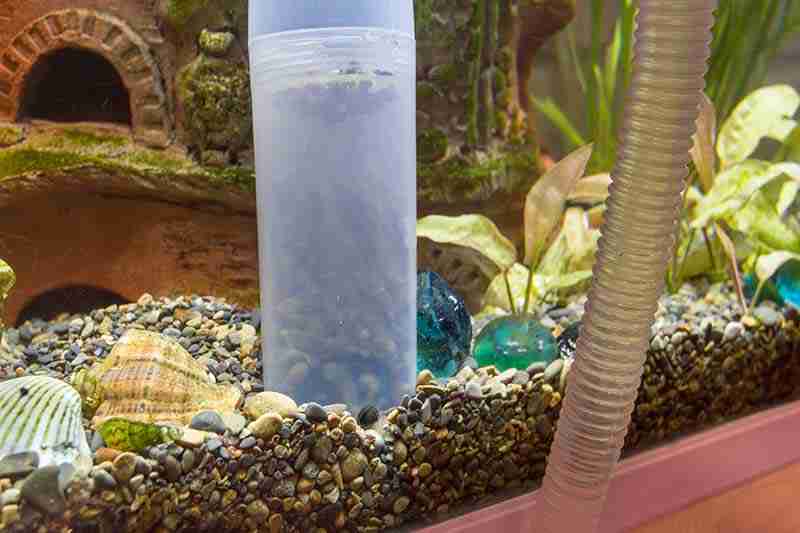
Some betta fish owners find playing music helps when they perform their weekly water changes or use the time to catch up on an audiobook or podcast. It’s important to keep your betta fish tank healthy, so why not make it more fun?
The whole process should only take 30 minutes, even quicker as you get used to it.
If your fish tank water gets a little cloudy after a water change, it is normal and nothing to worry about. Cloudiness is often caused by a sudden bloom of good bacteria feeding on the loosened waste particles or simply because of the disturbed sediment. Cloudiness usually subsides within a day.
If you haven’t already, I highly recommend reading my article on setting up a betta tank. You may find some useful nuggets of information that you didn’t know.
How Often To Change Betta Water
I have mentioned that you may need to change your betta fish water every two weeks, or maybe every week, while larger tanks can go even longer (WELL, THAT’S CONFUSING!), so exactly how often do you need to change your betta water?
It’s best if betta tank water can be changed every two weeks and larger tanks every three to four weeks, especially when using a good filtration system. Longer periods between water changes lower the risk of losing too many beneficial bacteria from the filter, water column, and substrate.
Good bacteria help keep ammonia, nitrate, and nitrite levels in check. Good bacteria is used as a form of biological filtration, kick-starting the nitrogen cycle. By removing water, you will also remove some beneficial bacteria.
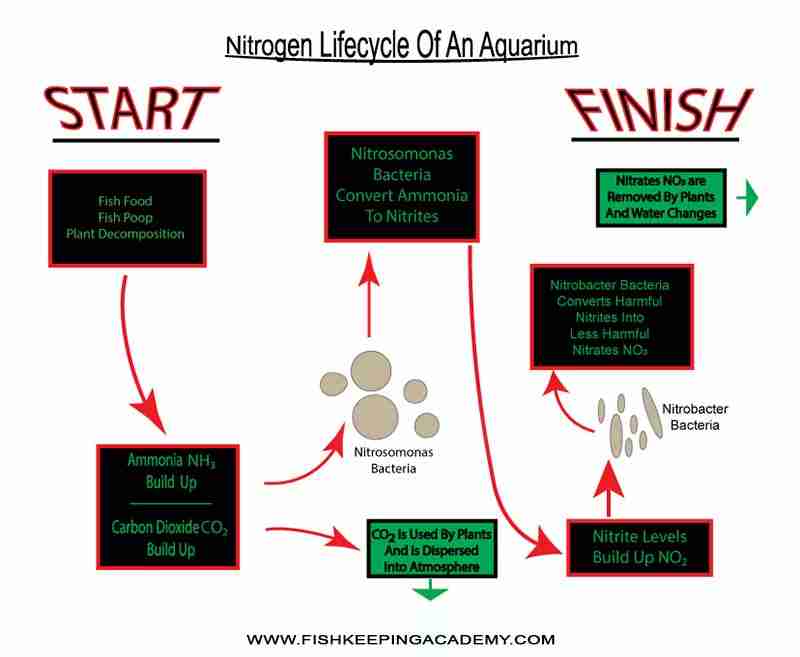
It’s basically a fine balancing act. If the chemical levels in your tank are seriously out of whack, a full water change may be necessary, but that has problems of its own and can cause stress to your betta fish.
Partial water changes are the easiest and safest. You can easily replace up to 50 percent of the water in your tank without any problems arising, and you will mostly only need to perform a small 20 percent change.
It is always wise to have some water test strips at hand to check the chemical composition of your betta water before waiting for symptoms of sick fish to appear.
How Often To Change The Water In A Small Tank
If you have opted for a small betta tank below 5 gallons, you will likely need to perform a small 20 percent partial water change at least every 2 days. Such frequent water changes are because a smaller body of water will become contaminated much more quickly than a larger body of water.
I assume that you may not have a filter in such a small tank and, therefore, will need to do the job of a filter by hand, but such frequent water changes don’t allow many opportunities for the growth of beneficial, nitrifying bacteria.
External filters are an option for small betta tanks, but ensure you get one that is suitable with a gentle flow rate.
How Often To Change The Water In A Medium Betta Tank
A betta tank of around 5-20 gallons will need a water change once every week to ten days, although some may be able to go up to two weeks before needing a partial water change.
In this size tank, you may have a filter that will help to keep the water clean for longer without needing as many changes. You may also be able to go up to two weeks before needing a partial change if there are no other factors in play, such as high ammonia levels.
A 20-50 gallon tank can still be considered a medium-size betta tank but is pretty large in betta terms. A tank of this size can go up to 2 and maybe even 3 weeks without needing a partial water change, just don’t stretch it out too far and keep a check on the tank water quality.
How Often To Change The Water In A Large Betta Tank
If your betta fish’s tank is 50 gallons or over, how often you change the water will depend on how many fish are in there, how much they eat, and how long your tank has been set up. It is wise to still test the water at least once a week with your water test kits and change how often you need to accordingly. You may find that the tank will comfortably maintain itself for 3 or 4 weeks.
Ideal Water Parameters For Betta Fish
Ensuring that you have the best water conditions will go a long way to ensuring your betta remains healthy. Although betta fish can be quite fragile creatures, they can survive quite well as long as their environment remains optimum to live within it.
You can use a water test kit to check the water parameters regularly.
Water Parameters At A Glance
The table below can be used as a quick guide to identifying the correct water parameters for your betta fish tank.
| Parameter | Target Value |
|---|---|
| Prefered Water Hardness dH (Degree of Hardness) | Soft (dH less than 25) |
| pH (Power of Hydrogen) | Neutral to Slightly Acidic (pH 6.5-7) |
| Preferred Water Temperature Range | 78° to 80° Fahrenheit, (25.5° – 26.7° Celsius) |
| Survivable Water Temperature Range | 72° – 86° Fahrenheit (22.2° – 30° Celsius) |
Water Temperature
The ideal water temperature for betta fish is between 78° to 80° Fahrenheit (25.5° – 26.7° Celsius). Bettas can live outside of these temperatures and can tolerate 72° – 86° Fahrenheit (22.2° – 30° Celsius), but they will not feel comfortable, and it can affect their health over a prolonged period.
Is Tap Water Safe For Betta Fish
Tap water is safe for betta fish to live in as long as the water is treated properly. It’s important that if your tap water has any chlorine or chloramines present, these will need to be removed before adding the water to your tank.
If there are chemicals such as mercury in the tap water, these can also be harmful to your betta fish, and using the correct treatments, you can help reduce other minerals and heavy metals that are present.
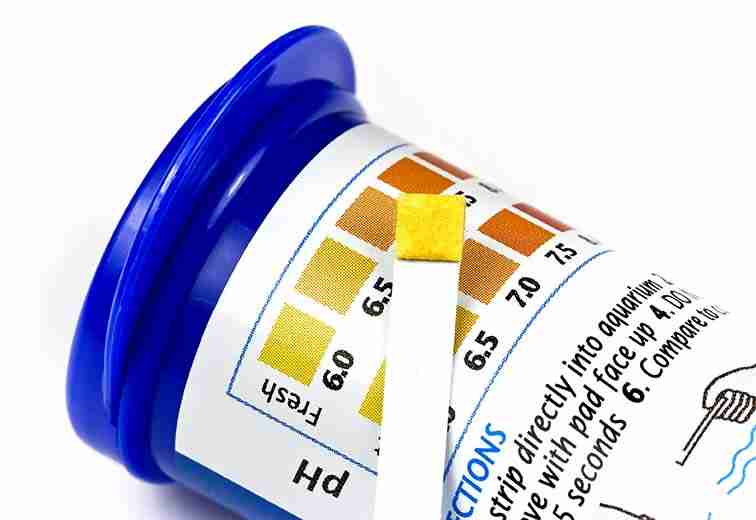
Ideal Betta pH Range
Betta fish prefer to live in softer water with a neutral pH level of around 7, although they can tolerate a slightly more acidic level of 6.5. It won’t matter too much if the pH level is a little off, providing it is consistent, you should be just fine.
Read my article on fish tank pH levels if you want to learn more. It will teach you everything you need to know as an aquarist.
Wrap Up
Essential to the ongoing health of your betta fish tank and to keep your betta healthy, frequent cleans and water changes should not be thought of as a chore and put off.
If you don’t clean your tank, it will likely become a toxic environment. Regular water changes and a clean tank will help your betta have a healthy, happy life and increase your betta’s lifespan.
If you are planning on doing a more intensive clean and you have stains, grease, or calcium deposits that are difficult to remove, I have an excellent article that explains how to use a vinegar solution to get your fish tank looking squeaky clean.


